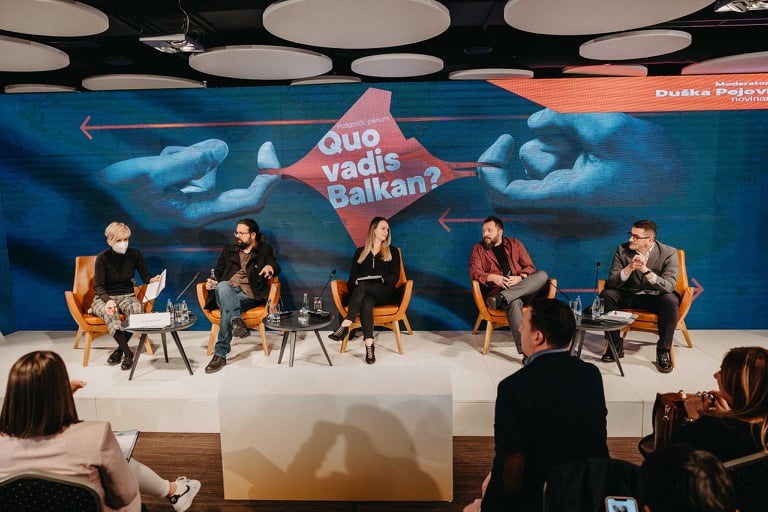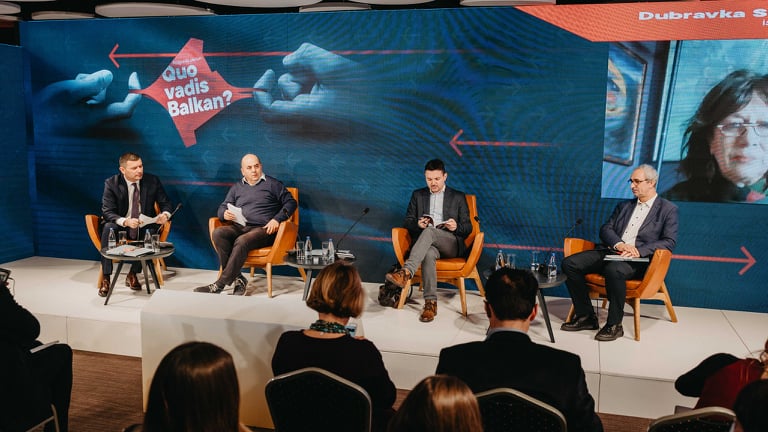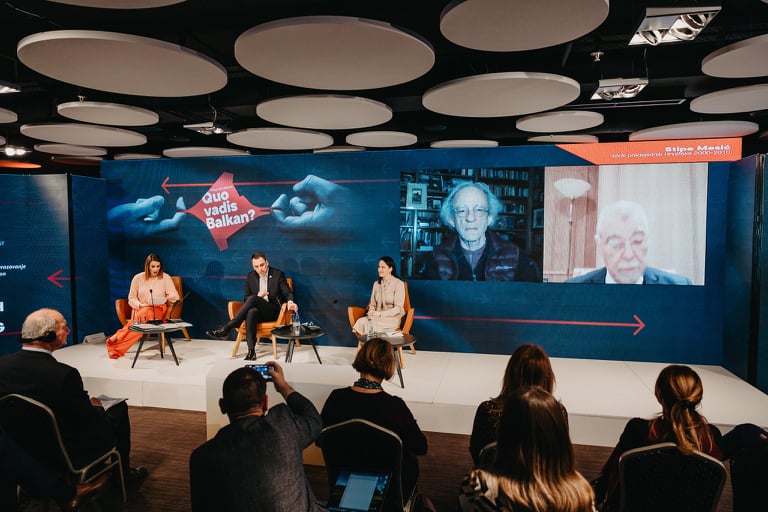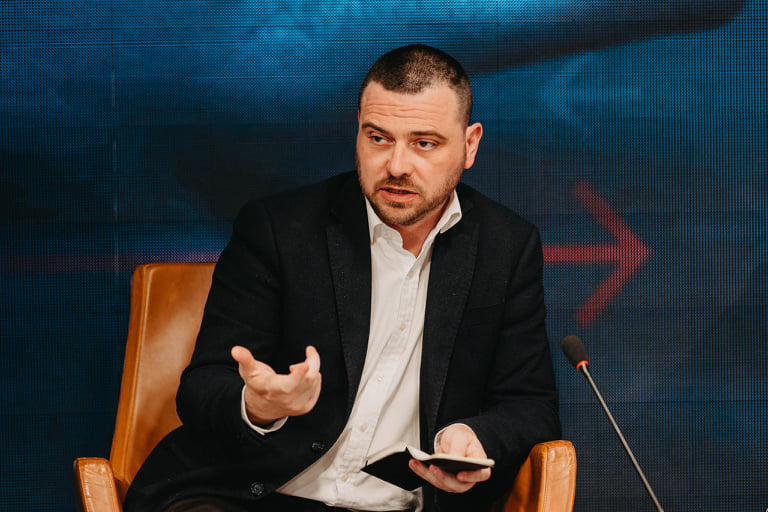
The importance of regional cooperation and solidarity in the fight against right-wing extremism are part of the conclusions of the Podgorica Plenum “Quo Vadis Balkan,” held from February 10th to 12th in Montenegro, with prominent intellectual, academic, and political leaders from the region.
The two-day regional event was organized by the Center for Civic Education, the Regional Academy for Democratic Development, and the Friedrich Ebert Foundation. Bringing together politicians, historians, journalists, publicists, writers, representatives of international and non-governmental organizations, and other participants from across the region, the Plenum focused on discussing ways to fight problems of growing nationalism, chauvinism, and extremism. Solutions emphasized empowering progressive forces to overcome these problems in order to ensure the stability and security of the region.
Historians spoke about radicalization and fascism in the Western Balkans, discussing the continual practice whereby political structures legitimize themselves by abusing history. “Marriage between politics and historiography is always a bad match,” said historian Ivo Goldstein.

Professor Husnija Kamberović analyzed the dramatic situation in Bosnia and Herzegovina and identified different narratives. As he said, talking about national historiographies means giving them the importance of scientific historiography, which certainly cannot be the case.
“History is a science about the present, not the past,” according to historian Dubravka Stojanović. She went on to stress that a distinction should be made between the revision of history and revisionism, as the latter implies the conscious, malicious, ideological, and targeted manipulation of historical facts and the abuse of the past.
During the panel “How to better project our voice?” publicists, journalists, and writers from the region emphasized the important role and influence of the media on the problems facing the region. Velma Šarić, the founder and president of the Post-Conflict Research Center and an experienced journalist, also highlighted the role of religious leaders in shaping politics in Bosnia and Herzegovina. As she noted, rather than promoting peace and stability, these figures have long contributed to destabilization and the dissemination of hatred in the country.
According to Šarić, the recent adoption of the Law on the Prohibition of Genocide Denial in Bosnia and Herzegovina was urgently needed. While the country is facing serious problems in the wake of its adoption, it is a law without which the future of young people in Bosnia and Herzegovina would be even more uncertain.
Journalist Vesna Mališić from Serbia said that one of the main problems in the region is hate speech, which is interpreted as freedom of speech, while Professor Vladimir Vojinović spoke about the dangers of introducing religious education in Montenegrin schools.
Benjamina Karić, the mayor of Sarajevo, was at the panel along with Stipe Mesić, the former President of the Republic of Croatia, Danijel Server, a professor at Johns Hopkins University, and Ivan Vuković, the mayor of Podgorica. Mayor Karić pointed out that the ideas of social democracy are of timeless importance and will persist despite efforts to stop them. She says that rather than discussing the disappearance of ideologies, we should be talking about strengthening and empowering social democracy and anti-fascism, because these are universal ideas that have nothing to do with religion, nationality, or political conflicts.

Saša Magazinović, a Member of the House of Representatives of the BiH Parliament, also spoke about the influence of social democracy at the panel together with Vesna Pusić, former Minister of Foreign Affairs and Deputy Prime Minister of the Republic of Croatia, Josip Juratović, Member of the German Bundestag, Ranko Krivokapić, former President of the Parliament of Montenegro, Duško Marković, Member of the Parliament and former Montenegrin Prime Minister, and Nataša Vučković, Executive Director of the Center for democracy in Belgrade.

They spoke openly about the problems facing leftists in the region. Magazinović stressed that the countries of the region want to become members of the European Union and “we must have the same values and rules that apply in the EU,” without any political comprises.
Daniel Serwer, one of the top international experts on the Balkans, noted that the situation in the region is extremely difficult and that all Balkan countries are economically dependent on aid from the European Union. He characterized flourishing ethnic populism in the Balkans as “a fertile ground for the actions of Russia, China and Turkey,” stating that one way to counter these influences was by “empowering progressive politicians who must act in cooperation with civil society.”
Serbia’s statement regarding the Russian-Ukrainian conflict was one of the main issues discussed by participants. Balša Božović, President of the Executive Board of the Regional Academy for Democratic Development, said that the Russian-Ukrainian crisis and Russia’s latest actions, as well as the responses of the European Union and Western democracies, faced Serbia with the dilemma of whether to harmonize its foreign policy with the EU or take a neutral stance under various pretexts, which would show, once again, that they are not a reliable EU partner.





